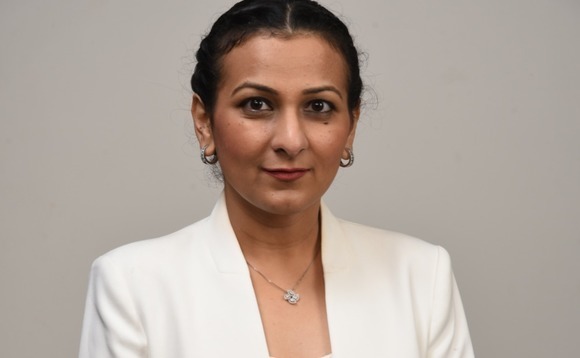
Deal focus: India's IIFL plans hospital expansion

India’s IIFL Asset Management is taking its private equity business deeper into healthcare with Kauvery Hospitals. The plan is to double patient capacity and IPO within three years
It's well understood that fast uptake of insurance and rising levels of health education have enhanced healthcare's natural investment appeal as a defensive, impact-oriented sector in developing markets. But the social uplift factor also plays into profitability.
"In most hospitals in India, you will still find that more than 50% of the patients pay cash. This direct-to-patient opportunity is an ability to create a branded franchise," said Nidhi Ghuman, a senior vice president in the private equity team at IIFL Asset Management.
"Most well-run hospitals in the country deliver margins and return on capital that is far superior to what you would see in developed markets."
Ghuman (pictured) has been focused on healthcare for 10 years, but IIFL has only begun to make private equity investments in the sector in the more recent term. It started with specialist operators, picking up stakes in eyecare chain Infigo Life Sciences and dialysis clinic network NephroPlus in 2019 and 2021, respectively.
Specialists are still of interest, especially in categories like in-vitro fertilisation (IVF), mother-and-baby, and oncology. But with IIFL's experience to date, there is a sense that generalist, multi-speciality hospitals have become an approachable challenge, at least as a minority investor.
The first play in this vein was an anchor investment in Rainbow Children's Hospital's INR 13bn last year. The latest came earlier this month with a USD 70m commitment to Kauvery Hospitals, a doctor-owned chain in the southern states of Karnataka and Tamil Nadu.
IIFL is investing via its growth equity and pre-IPO programme Special Opportunities Series 9 & 10, a single pool of capital that reached a first close of INR 26bn last March and was targeting a final close of INR 40bn by the end of 2022. Ghuman declined to comment on fundraising.
IIFL is joining a cap table that already features LGT Lightstone Aspada – which invested USD 20m in 2019 – and the family office of GSK Velu, chairman of medical technology provider Trivitron Healthcare. Velu was the largest shareholder in Kauvery as of mid-2022.
Both existing investors remain invested. "There was very limited secondary in this deal. That has a good signalling value," Ghuman said.
Kauvery started as a single 30-bed hospital in Trichy in 1999 and has since grown to eight locations with 1,500 beds across six cities, making it the second largest operator in Tamil Nadu after Apollo Hospitals. Areas of activity include cardiology, oncology, neurology, renal sciences, orthopaedics, and organ transplants.
Kauvery's key differentiator is affordability, with services said to be 15%-20% less expensive than those of Apollo. This has allowed it to expand into lower-tier cities such as Hosur, Salem, and Tirunelveli, although there is also a presence in Chennai and Bangalore.
"That gives Kauvery a unique opportunity to cater to a much wider market," Ghuman said. "The larger hospital chains that started in the bigger cities have not been able to do that because they took a cookie-cutter approach, trying to replicate the same cost structures in small cities."
The new funding is intended to help grow the chain to 15 locations with more than 3,000 beds by 2025. This will take place in existing markets, including a mix of new buildings and extensions to existing buildings.
"We got a lot of comfort from the fact that most of the locations, land parcels, and the buildings were already in place. That was a big check for us for underwriting the expansion," Ghuman said. "The risk for any hospital chain that is embarking on an aggressive expansion is that there could be delays and cost overruns, and hence the balance sheet gets impacted."
When the expansion is complete, Kauvery is expected to pursue an IPO. The company is steadily profitable and already considered of sufficient scale to list, but it's distinctly possible the experience of Rainbow is behind the patience.
Rainbow listed at a 6% discount to its issue price amidst weak market sentiment, received a lacklustre response from retail investors, and saw shares plunge immediately after listing. It was merely a false start – the stock is currently up 60% on its IPO price – but with only 1,500 beds at the time, there appears to be a case for going public with a bit more upfront oomph.
"You want to do it at the right size and scale, when the markets are right, where there can be good FII [foreign institutional investors] interest, and you have a growth plan that will allow even the public investors to create value through their investment," Ghuman said. "I think 2,500 beds would be the right size."
Latest News
Asian GPs slow implementation of ESG policies - survey
Asia-based private equity firms are assigning more dedicated resources to environment, social, and governance (ESG) programmes, but policy changes have slowed in the past 12 months, in part due to concerns raised internally and by LPs, according to a...
Singapore fintech start-up LXA gets $10m seed round
New Enterprise Associates (NEA) has led a USD 10m seed round for Singapore’s LXA, a financial technology start-up launched by a former Asia senior executive at The Blackstone Group.
India's InCred announces $60m round, claims unicorn status
Indian non-bank lender InCred Financial Services said it has received INR 5bn (USD 60m) at a valuation of at least USD 1bn from unnamed investors including “a global private equity fund.”
Insight leads $50m round for Australia's Roller
Insight Partners has led a USD 50m round for Australia’s Roller, a venue management software provider specializing in family fun parks.







